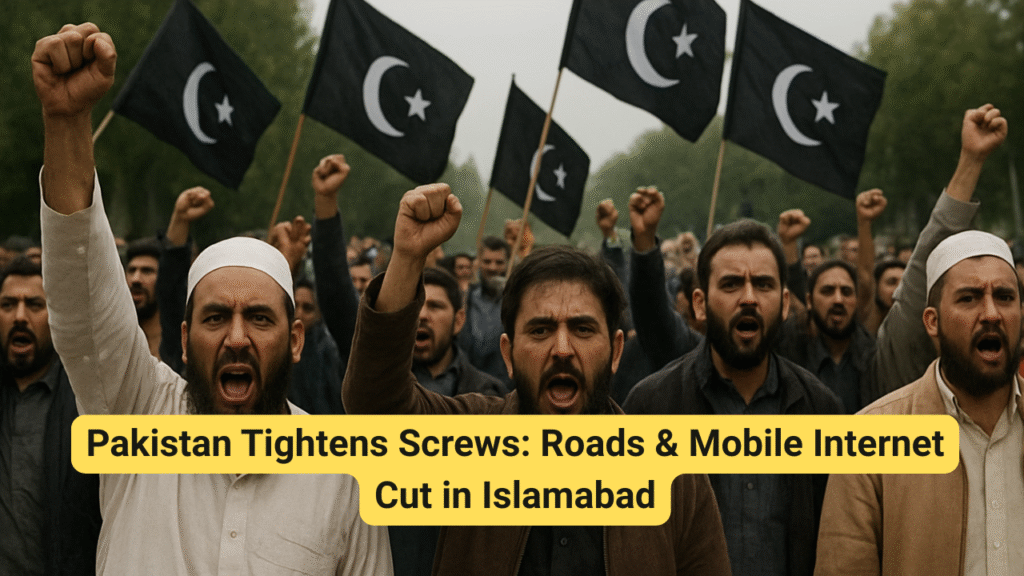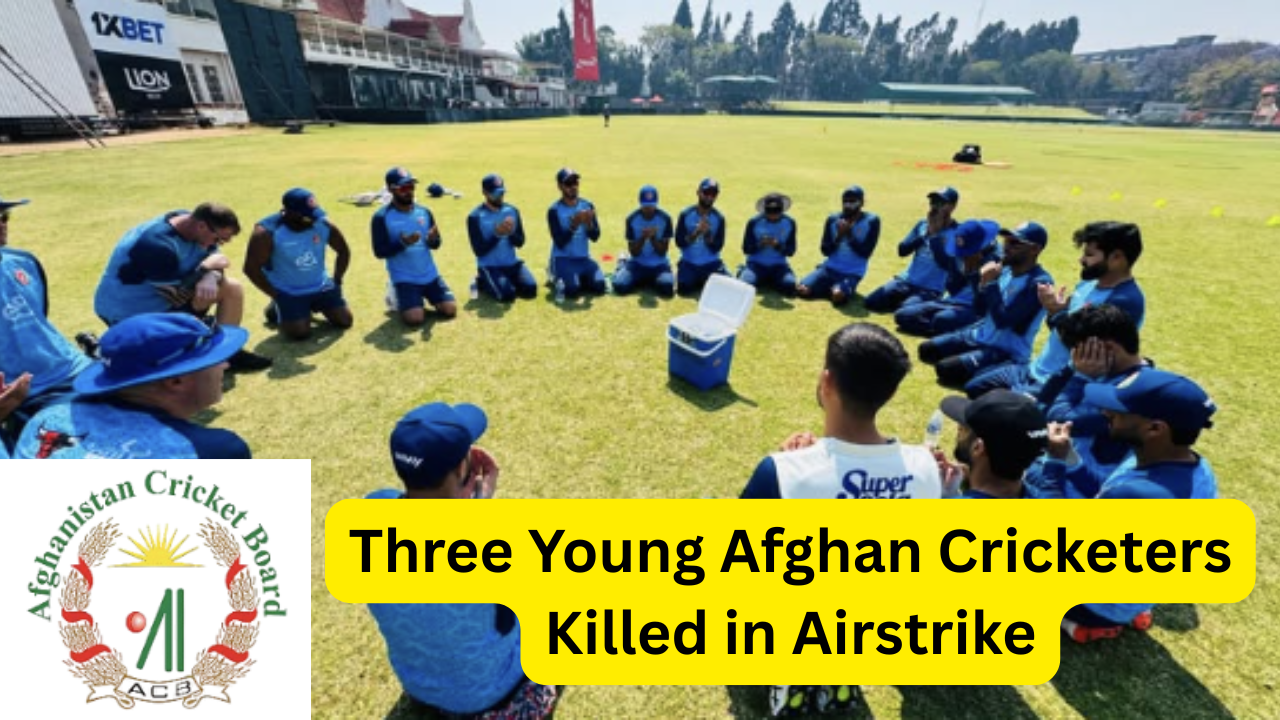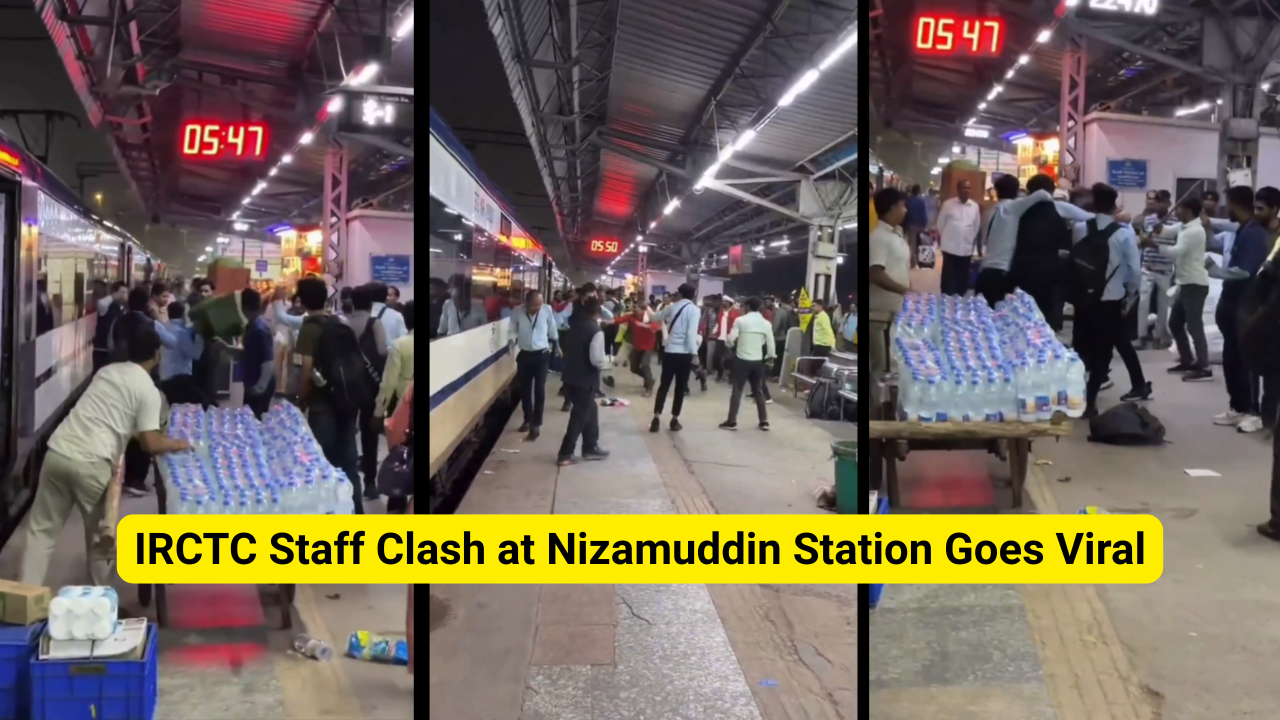Pakistan Tightens Screws: Roads & Mobile Internet Cut in Islamabad- Pakistani authorities have deployed heavy-handed measures in the capital region, blocking roads and suspending mobile internet in Islamabad (and nearby Rawalpindi) ahead of a major protest organized by the religious party Tehreek-e-Labbaik Pakistan (TLP). The steps have sparked debate over whether the government is deliberately constraining religious expression under the guise of security.
Heavy Security and Internet Suspension
Late Thursday into Friday, all major arteries leading into Islamabad were sealed off using shipping containers, barricades, and additional security deployments. At the same time, mobile internet services — including 3G and 4G connectivity — were suspended indefinitely in the twin cities. The government has cited the potential for violence and unrest as justification for the shutdown.
The TLP had announced a mass march called the “Labbaik Ya Aqsa Million March”, intended to stage protests outside the U.S. embassy in Islamabad in solidarity with the people of Gaza. In recent days, police raids at the party’s headquarters in Lahore, and attempts to arrest key leaders, triggered clashes with supporters. Dozens of people were reportedly injured during confrontations.
Government’s Security Justification
Authorities argue these security measures are necessary to maintain public order, especially in light of rising tensions and the possibility of large-scale mobilization. In Rawalpindi, the local administration invoked Section 144, banning public gatherings, rallies, and processions.
Additional restrictions include:
- Ban on loudspeakers and weapons
- Closure of schools and institutions amid heightened security
- Increased police and paramilitary presence in key zones
Critics See Political Suppression
Critics, however, see deeper political motives. Many suggest the road closures and suspension of mobile internet are tactics to stifle dissent and preempt large religious gatherings before they even begin.
The timing — just as TLP’s planned march gains momentum — raises questions about whether the state is conspiring to suppress religious expression.
Public Disruption and Communication Blackout
For the public, the sudden blackout of mobile communication and shuttering of roads have created major disruptions:
- Commuters stranded across key routes
- Emergency communications affected
- Information flow hindered across the region
In a society where mobile connectivity is central to daily life, the cuts have a chilling effect beyond just protest regulation.
Security vs. Civil Liberties
As Islamabad braces for what could become a confrontation point, the collision of security protocols and civil liberties is under the spotlight.
Will the TLP’s protest be allowed to go ahead in some capacity, or will the heavy restrictions succeed in sidelining it altogether?
Only time will tell whether these measures are temporary emergency steps or a sign of intensifying control over religious and political expression in Pakistan.









